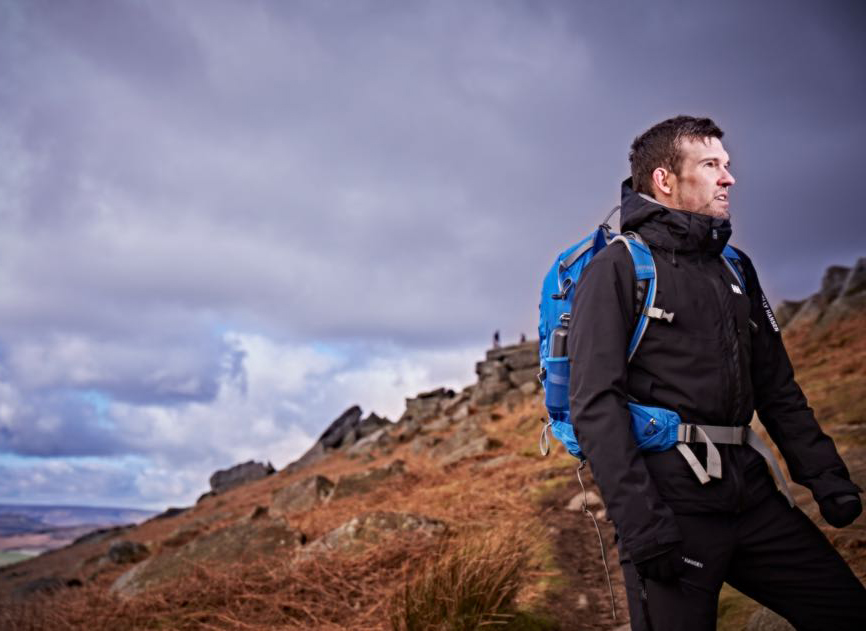As I stand in base camp with snow gently falling, I focus on my breathing and look at the sky to the distant summit of the mountain. A line of black dots snake their way up the face of the steep path that rises out of camp and stretches high into the distance before disappearing around a corner. I wonder how I will ever make it to the top—a seemingly impossible distance away. There is a sense of familiarity about the whole situation: the old shipping containers that serve as bunk houses at base camp; the creaking, rickety ski lift that has seen better days; and the harsh cold wind that blows a fresh blanket of snow over the scene in front of me. I’ve been here before; I attempted to climb this mountain last year, only I wasn’t successful.
I failed.
Related: 21 Quotes About Failing Fearlessly
I returned to Russia with a clear objective: to finish what I started the year before and successfully summit the highest mountain in Europe. Mount Elbrus, a dormant volcano tucked away in a quiet southwestern corner of Russia, dominates the western reaches of the Caucasus Mountains at a height of 5,642 meters. My past failing left its scar in the shape of self-doubt and unanswered questions of my ability to achieve this goal. Now the mountains of my mind begin to look as daunting as the craggy, snow-capped peaks that loom over me. What started as quiet whispers of uncertainty have gradually increased in volume the closer I come to attempting my second summit attempt. Now they are full-blown cries of doubt.
But I take comfort in knowing that I failed last time, albeit partly due to events out of my control. For all of our successes in life, I believe it’s our defeats and setbacks that teach us the most. I would have preferred not to have failed, but in doing so, I learned more about myself than from any of my successes. From the moment I reset the goal, a little voice has asked me the same question: Are you good enough to do it this time? That voice forced me to look within, challenged me to grow as an individual in all areas of my life, but especially in developing a stronger mindset.
We often think of mental toughness in relation to how we react to extreme situations—our ability to bounce back after going bankrupt, the resilience to try again after another failed business idea or holding our life together while grieving the loss of a family member. There’s no doubting these situations will test our courage and perseverance, but the mental toughness we need to get through them is forged on a daily basis. It’s about pushing ourselves in a thousand small ways to ensure that when the time comes, we have the ability to cope with the large obstacles.
Related: 4 Ways to Turn Obstacles Into Opportunities
When I decided to embrace a life of challenges, I did so knowing I would need to develop myself physically, but, more importantly, I would need to develop and nurture a mindset that enables me to overcome even the greatest of challenges. I needed to build my belief that I could achieve significant success. The same applies to building a business; we need to expand our mindset and belief in our own ability in order to achieve our greatest goals. The mind is the limit—the only thing standing between us and where we want to be in life is our belief in our own ability. Once we understand that, we can focus on developing a mindset that enables us to look at any situation in a positive state of mind, knowing that there might be challenges along the way, but knowing, too, that nothing can prevent us from achieving our goals.

COURTESY OF MARCUS LEACH
It starts with our internal dialogue. Of all the conversations we engage in on a daily basis, the most important are the ones we have with ourselves. When left unchecked, they have the ability to extinguish any seeds of hope we might have in achieving our goals because our actions are inspired by our thoughts. Self-talk can quickly lead us to entertain thoughts of self-doubt, allowing past experiences and limiting beliefs to determine what we believe to be possible.
If we tell ourselves something enough times—positive or negative—eventually we start believing it. In telling ourselves that we can’t do something, we start to create a mental block, and instead of our minds seeking solutions to situations and challenges, we can only focus on reasons why we can’t do it. We begin to create mountains of the mind that seem unconquerable. To develop the positivity of our internal dialogue, we need to increase our levels of awareness and we need to actively monitor the voice in our head. By guarding our thoughts, we start to develop a strengthened state of mind that builds us up, that gives us the belief we can achieve anything, that leads to a life of success.
Related: How to Overcome Your Can’t-Do Attitude
The level of doubt we might have in our ability can increase significantly the closer we come to attempting the task at hand—as was the case when I stood at base camp with two vertical kilometers of climbing looming between me and the summit. But not only had I fortified my mind, constantly telling myself that I can overcome the mountain, I had visualized the act of achieving my goal over and again before it had even happened. I had created a detailed mental image of the exact moment I would set foot on the summit, I imagined how I would feel, what emotions I would experience, every last little detail, and then I played the scene out in my mind every day. I was telling my subconscious that I was going to succeed, and that built my belief and confidence.
To achieve positive outcomes, we need to embrace failure; we need to let it drive us toward success rather than limit it. The more open we are to failure, the greater our potential is for improvement. Mistakes and failures are an essential element in our development, so we should view them as part of our life training. Fear of failing holds us back, which results in us developing risk aversion, whereby we are safely ensconced in our comfort zones for the rest of our lives. In adopting this “playing it safe” mentality, we never grow and thus never reach our full potential. I sometimes think about what would have happened had I let the fear of failing a second time stop me from going back to Russia.
Even in the moment, there was an element of fear, and not just of failing but of the climb itself. Seven hours after leaving base camp, having climbed through the night, in my mind we had overcome the hardest part of the mountain. I couldn’t have been more wrong, because what followed was a torturous two hours battling seemingly vertical slopes and treacherous sections of icy rocks. The higher we climbed, the worse conditions became, and as we finally neared the summit, a storm was upon us. Forty mph winds and nearly zero visibility from the snow that swirled in the air reduced our progress to a crawl. All the while that little voice asking the same question as it had done for the past year: Are you good enough to do it this time?
For all of the visualization, I never for one moment imagined we would be battling such extreme conditions to reach the pinnacle of the mountain. Stretched to my mental and physical limit, those final steps were filled with an almighty sense of achievement, not just because of the act of reaching the summit itself, but because of all I had endured along the way. The greatest mountains we must conquer are those within our minds. And once we do, there is no limit to what we can achieve in life or in business.



